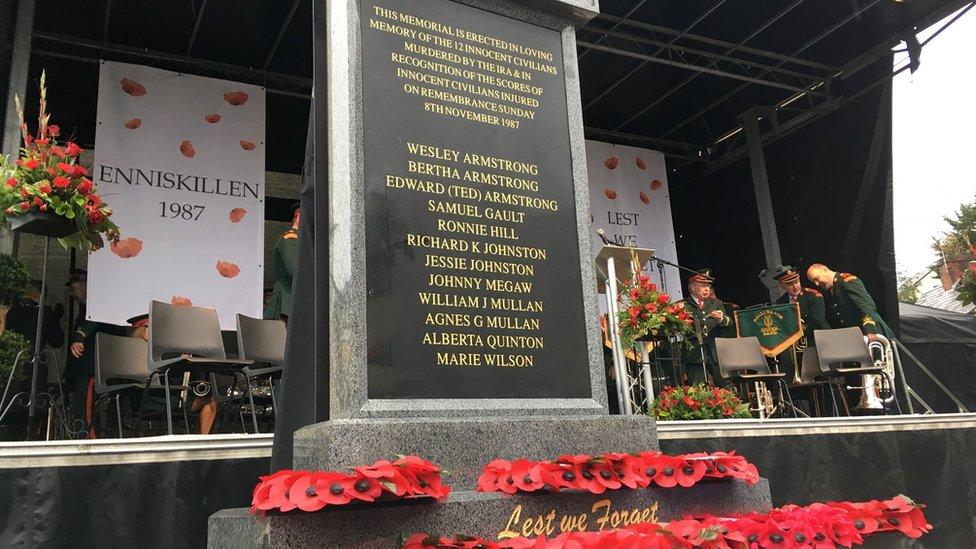Enniskillen bomb families ask Catholic Primate for help
- Published
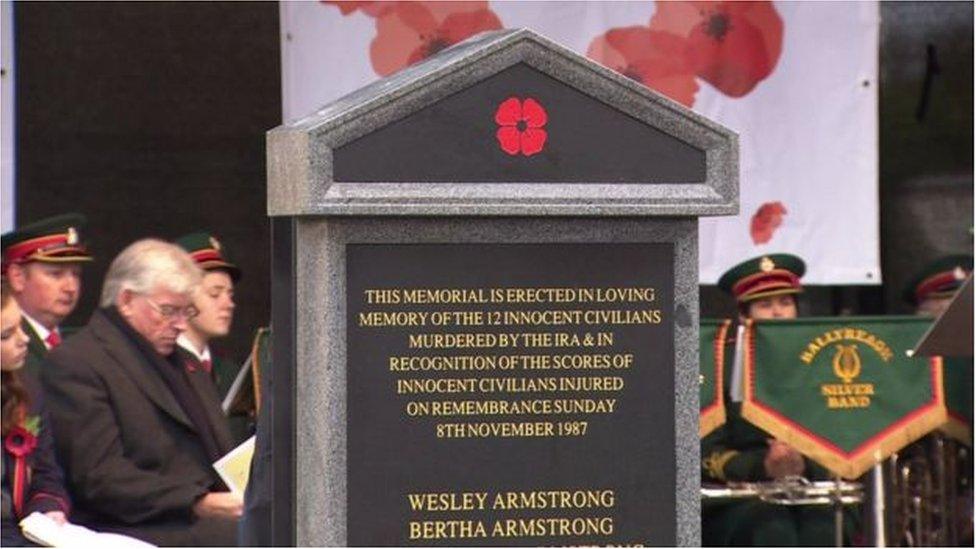
The memorial which was unveiled at an event marking 30 years since the attack
Some of the families of those killed in the Enniskillen Poppy Day bomb want the head of the Catholic Church in Ireland to intervene in a row over a memorial.
Twelve people were killed and 68 others were injured in the bombing in Enniskillen, County Fermanagh on Remembrance Sunday 1987.
A memorial had been unveiled at an event marking 30 years since the attack.
But it was taken down and put into storage.
The diocese which owns the land said it had not been consulted by the council.
The proposal by families to place the memorial outside the Clinton Centre, Enniskillen, has been formally rejected by St Michael's Diocesan Trust.
Stephen Gault, whose father was killed in the atrocity, said he was "deeply hurt but not surprised," by the decision.
"Upset is an understatement. The families are hurting immensely over this.
"This is a single tribute to our loved ones brutally murdered at the hands of terrorists.
"As regards the size of it, when the planning was applied for the dimensions were there to be seen in the planning application.
"If the Catholic church are surprised by the size, I find it hard to believe."
'Some compromise'
Margaret Veitch whose parents were both murdered in the bomb claimed that no-one from the church would meet them.
"I would like a face-to-face meeting and maybe we could come to some compromise. We have requested one for months.
"We can't change the wording on the memorial because we're only telling the truth and how can you put 12 names on a smaller memorial?"
Both Mrs Veitch and Mr Gault said they had received no support from politicians or churches in the area.
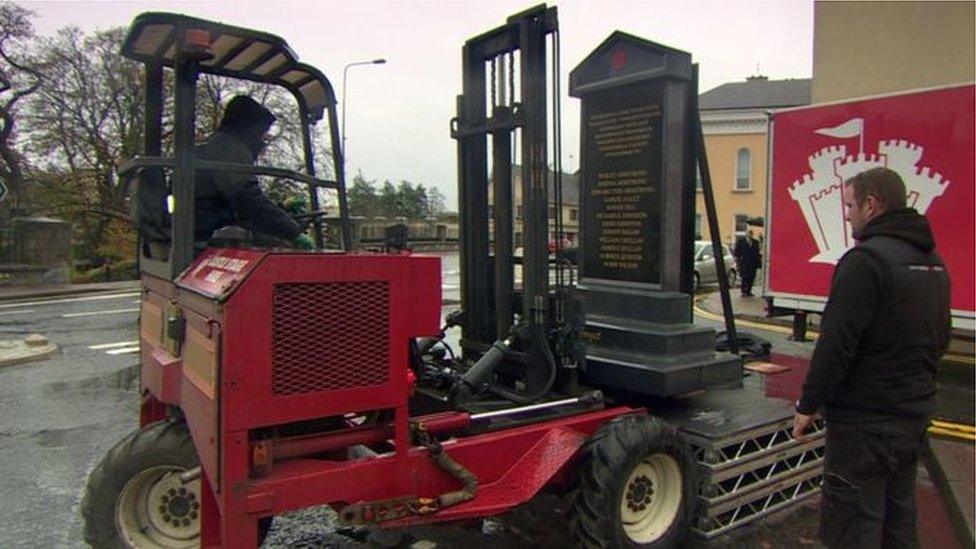
The memorial being removed and put into storage
Aileen Quinton, who lost her mother Alberta in the bombing, told BBC's Talkback programme it was important any memorial was in a public place.
She said a proposal to have a monument inside the Clinton Centre was a "really horrible idea".
"The idea that it will be inside and locked up at night, where you have to make an appointment to see it - It must be outside near to where our loved ones died," she said.
Mrs Quinton said she felt victims of the atrocity had got used to being at the "bottom of the heap".
"They need to engage with the pain of the victims. My concern would be that people don't want to remember this.
"The shame should be attached to those who murdered, but the shame seems to be directed at those who want to have a memorial.
"It was a big horrible event and it shouldn't be hidden away," she added.
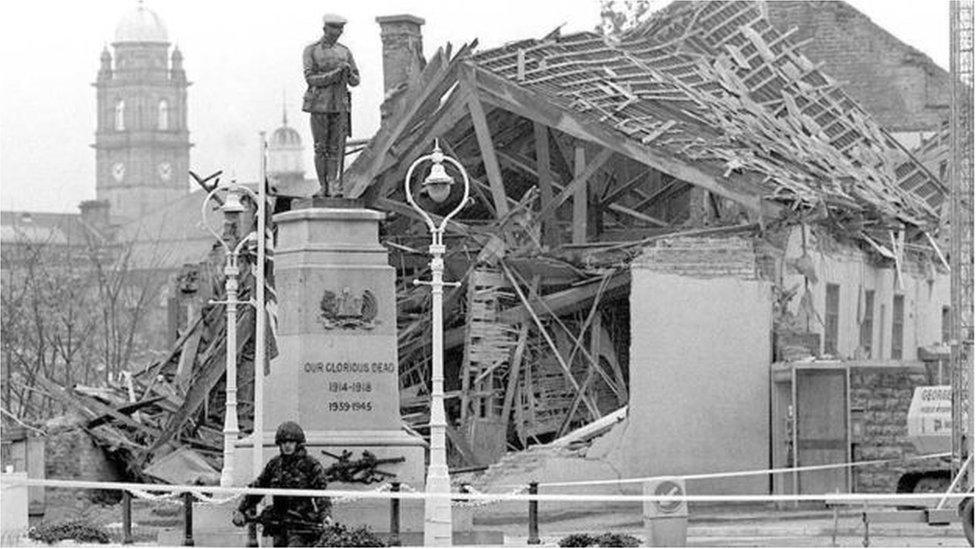
The scene at the cenotaph in Enniskillen after the 1987 bombing
Monsignor Peter O'Reilly, the parish priest of Enniskillen, told the BBC last week that the move was not about rejecting any memorial or the content of the memorial, but this particular memorial and its proposed location.
He told BBC's Good Morning Ulster programme: "We are open to other proposals".
In a statement from St Michael's Parish, a spokesman said they were "deeply conscious of the horrific effects and legacy of the Enniskillen Remembrance Day bomb in November 1987.
"Let us be very clear: the trust has no objection to a permanent memorial being erected to the victims of the Enniskillen bombing," a spokesman said.
"The sheer size of the memorial, taken together with the high volume of footfall on the public footpath in front of the Clinton Centre, and the connected issues of access to the school at the side and rear of the building, would make the proposed location unsuitable from the point of view of the health and safety of the public."
Now, the families are taking their call to the Catholic Primate of Ireland, Archbishop Eamon Martin.
Kenny Donaldson, of the South East Fermanagh Foundation, which supports many of the Enniskillen bereaved and injured, said it was a "very difficult situation that threatens relations in the area".
"We have a group of people who are victims. They are merely asking a Christian Church to give consent to their plan to remember their dead in a very dignified way," he said.
- Published4 May 2018

- Published9 November 2017
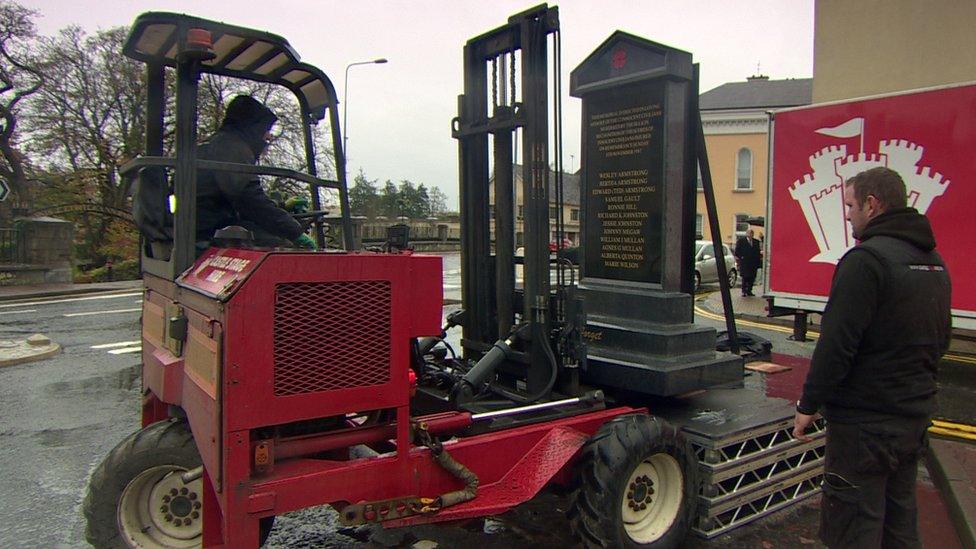
- Published8 November 2017
